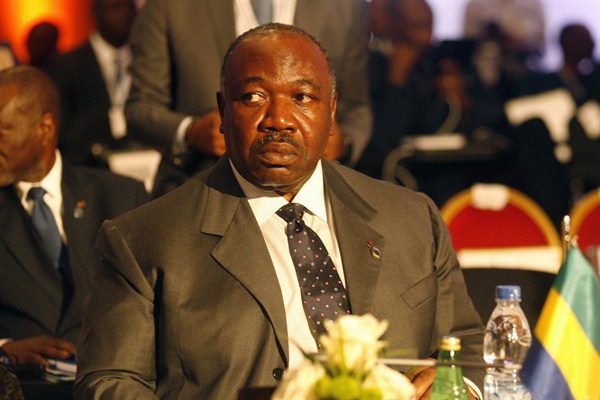Last week, the National Assembly of Gabon passed a bill that would revise the country’s constitution. It did so with as little fanfare as possible. As AFP noted, the news went unmentioned on state media, and the official who confirmed it to the agency declined to give his name.
This is perhaps unsurprising given that President Ali Bongo Ondimba’s government has kept the actual substance of the revisions under wraps as well, opting not to make the bill public even though the Cabinet approved it back in September before sending it to lawmakers. Multiple versions have circulated online, but the government has not addressed their authenticity.
Regardless of whether the state deigns to discuss them, the bill, which now needs to go to the Senate, is the talk of Gabon’s political class. The Central African nation doesn’t have a presidential term limit, so there’s no need for Bongo to mimic other African leaders who have tried to change the rules so they can stay in power. But government critics have denounced the proposed revisions as an attempt to grant even greater authority to the president at the expense of the legislature and oversight bodies. Last month, Jean Ping, who narrowly lost the 2016 presidential election to Bongo, told his supporters that the government’s endeavor “carries the seeds of the republic’s liquidation.” He and other opposition politicians have claimed the bill would establish a monarchy in place of Gabon’s young, fragile democracy.

